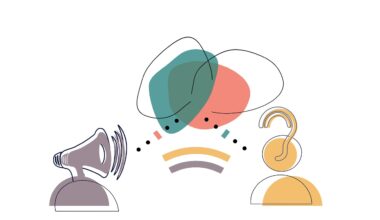Why You Should Avoid Sharing Emotional Rants Online
In the era of digital communication, sharing thoughts and feelings on social media has become a common practice. However, venting emotional rants can have severe repercussions. When individuals post while experiencing strong emotions such as anger or sadness, their judgment may be clouded. This impulsivity can lead to sharing content they may regret later. The negative impact on their reputation and relationships is often profound. Emotional posts can be perceived as attention-seeking or unprofessional, especially in the workplace. Establishing boundaries for emotional expression online is vital for maintaining a positive digital persona. Additionally, emotional outbursts can escalate conflicts rather than resolve them, leading to misunderstandings that may linger long after the initial post. By refraining from posting when upset, one can reflect on their feelings in a healthier manner. It is essential to consider the potential long-term effects of these emotional outbursts on one’s online presence. Practicing restraint can yield far better outcomes, promoting mental well-being and accountability in social interactions. Thus, adopting caution when sharing online becomes a crucial aspect of social media etiquette.
The Risks of Impulsive Posting
Emotional rants often bring risks that are not immediately evident. When someone expresses anger or frustration on a public platform, they may attract unwanted attention. Friends or family may weigh in, complicating the situation further. Their opinions can lead to further emotional turmoil since the person venting may feel exposed or misunderstood. Moreover, negative comments from others can diminish one’s self-esteem. This phenomenon highlights the importance of processing emotions privately before going public. Taking time to cool down allows for clearer thinking and more thoughtful communication. During emotional moments, it is easy to misinterpret comments or responses due to heightened sensitivity. Instead, stepping back from social media can provide valuable perspective. Users can seek private conversations with trusted friends to discuss feelings without the scrutiny of a public forum. This approach fosters deeper connections and ensures that emotions are conveyed in a safe space. Using social media for emotional expression should be done cautiously, or ideally avoided altogether. Setting aside time to gather thoughts can prove to be highly beneficial in promoting healthier interactions.
Furthermore, sharing emotional rants can have professional implications. Employers often monitor employees on social media, making it critical to maintain a professional presence online. A single emotional post may damage one’s career prospects, as it could portray a lack of composure. In business settings, professionalism is paramount. It is vital to understand that potential employers may view social media profiles before making hiring decisions. Thus, an emotional outburst can permanently stain a reputation. Companies value individuals who can manage their emotions responsibly. Professionalism on social media involves showcasing the best version of oneself, ensuring one’s behavior aligns with personal and professional values. Additionally, even seemingly harmless complaints can be misconstrued and taken out of context. By focusing on creating a positive online image, individuals improve their chances for career advancement. Fostering relationships built on mutual respect can also facilitate a supportive network in times of need. Taking control of one’s online narrative is possible with mindful posting. The long-term benefits of practicing restraint on social media far outweigh the temporary relief provided by an emotional rant.
Building Emotional Awareness
Another vital aspect of refraining from emotional posting is building emotional awareness. Recognizing one’s emotions is crucial for healthy communication. Journaling or engaging in self-reflection can be effective strategies for processing feelings away from social media. This practice enables individuals to understand their emotional triggers, making it easier to manage reactions in moments of distress. Mindfulness techniques can also contribute to emotional intelligence. Techniques such as deep breathing or meditation help cultivate a sense of calm before responding to emotional situations. Understanding how emotions affect decision-making is critical for successful engagement in social media communication. Moreover, developing a support system of friends or therapists can aid in occasions of emotional distress. These trusted individuals can offer constructive advice and alternative perspectives. In these cases, intimate conversations allow for meaningful emotional expression without the repercussions of public scrutiny. Increased emotional awareness translates into more thoughtful posts when one does choose to share. Giving oneself time to process helps craft messages that reflect true feelings authentically. Consequently, the potential for misunderstandings diminishes significantly, creating a more positive online experience.
Social media platforms can often create an illusion of connection while simultaneously fostering isolation. Individuals may feel compelled to share everything, from joyous milestones to the occasional emotional breakdown. However, transparency has its limits. Oversharing personal grievances can wear down relationships and prompt others to disengage. Social connections thrive on mutual respect and understanding, not on constant emotional venting. If individuals wish to maintain healthy relationships online, moderating their emotional expressions is essential. Striking a balance between sharing and oversharing enables vibrant connections to flourish. Moreover, relying on social media as an emotional outlet can hinder genuine personal connections. Instead, utilizing technology to foster relationships through positive interactions can yield more rewarding outcomes. Engaging with others by celebrating their successes or offering support during challenges promotes community and belonging. This approach prioritizes connection over chaos and encourages healthier social habits. When stepping away from emotional posts, people give themselves the opportunity to seek out and cherish those genuine connections. Prioritizing quality over quantity transforms one’s digital experience into a more uplifting and supportive environment. Hence, cultivating deeper connections becomes more viable when mindful posting practices are adopted.
Deciding What to Share Online
Determining what to share online requires careful consideration of emotional intent. Individuals should ask themselves: Is this post necessary? Does it serve a purpose beyond venting? Such inquiries can help filter emotions and foster thoughtful sharing. Expressing feelings of sadness or frustration is natural, but it necessitates appropriate channels. For example, talking to friends face-to-face or engaging with a therapist can provide the emotional release needed without the risks that come with public posting. Social media should not serve as a diary but as a platform for connecting with others constructively. People should prioritize sharing content that adds value or inspires positivity for their audience. On the other side, venting alone may come across as self-indulgent or burdensome. Besides, potential repercussions might outweigh brief emotional relief when posts lack purpose. Developing a guideline for social media engagement can help individuals discern the appropriateness of their sharing habits. Creating a checklist of emotions and preferred sharing outlets can lead to healthier posting behaviors. Analyzing one’s emotional state before hitting the ‘post’ button transforms how interactions unfold on social media.
Ultimately, embracing emotional intelligence in social media usage can lead to foster healthy online communities. Practicing restraint and prioritizing emotional awareness significantly positively affects relationships. Enhancing one’s capacity to manage reactions promotes constructive online discussions. By taking a measured approach to emotional sharing, individuals empower themselves to build respect and understanding among their network. Furthermore, establishing guidelines ensures that personal emotional experiences align with social media values. Individuals practicing restraint may notice a shift in their emotional health, as they become aware of triggers and create coping strategies that do not involve public outlets. Social media can become a platform for encouragement and upliftment when used responsibly. Moreover, positivity can spread like wildfire, impacting many lives positively. Learning from emotional experiences rather than publicly venting can lead to increased resilience and personal growth. Utilizing social media as a tool for connection becomes infinitely more rewarding when used mindfully. As individuals become more aware of their emotions, they can navigate digital environments intentionally and successfully. Cultivating this level of awareness yields transformative effects, ultimately ushering in healthier interactions, both online and offline.
Conclusion
In conclusion, avoiding posting emotionally charged content on social media is paramount in maintaining relationships and reputations. Reflecting on feelings before sharing ensures that posts bring value, rather than emotional chaos. Emotional rants can diminish self-respect and hinder professional growth, highlighting the importance of self-awareness. By prioritizing emotional intelligence and mindfulness, individuals can create a more thoughtful online presence. As the digital landscape continues to evolve, cultivating respectful communication habits is key. Mindful posting fosters a sense of community and support among social media users. Implementing these strategies ultimately enriches the online experience, creating space for authentic connections and emotional well-being. Social media should be a platform for positivity and inspiration, not a breeding ground for negativity. With careful consideration of what to share, individuals can yield a lasting impact on their networks. As they engage with others, they should focus on uplifting content that encourages positivity. Maintaining such practices ensures a healthier, more supportive digital community. The potential for personal and professional growth becomes boundless when one aligns with emotional wisdom online. Embracing these principles not only benefits oneself but also contributes positively to the broader social media landscape.


